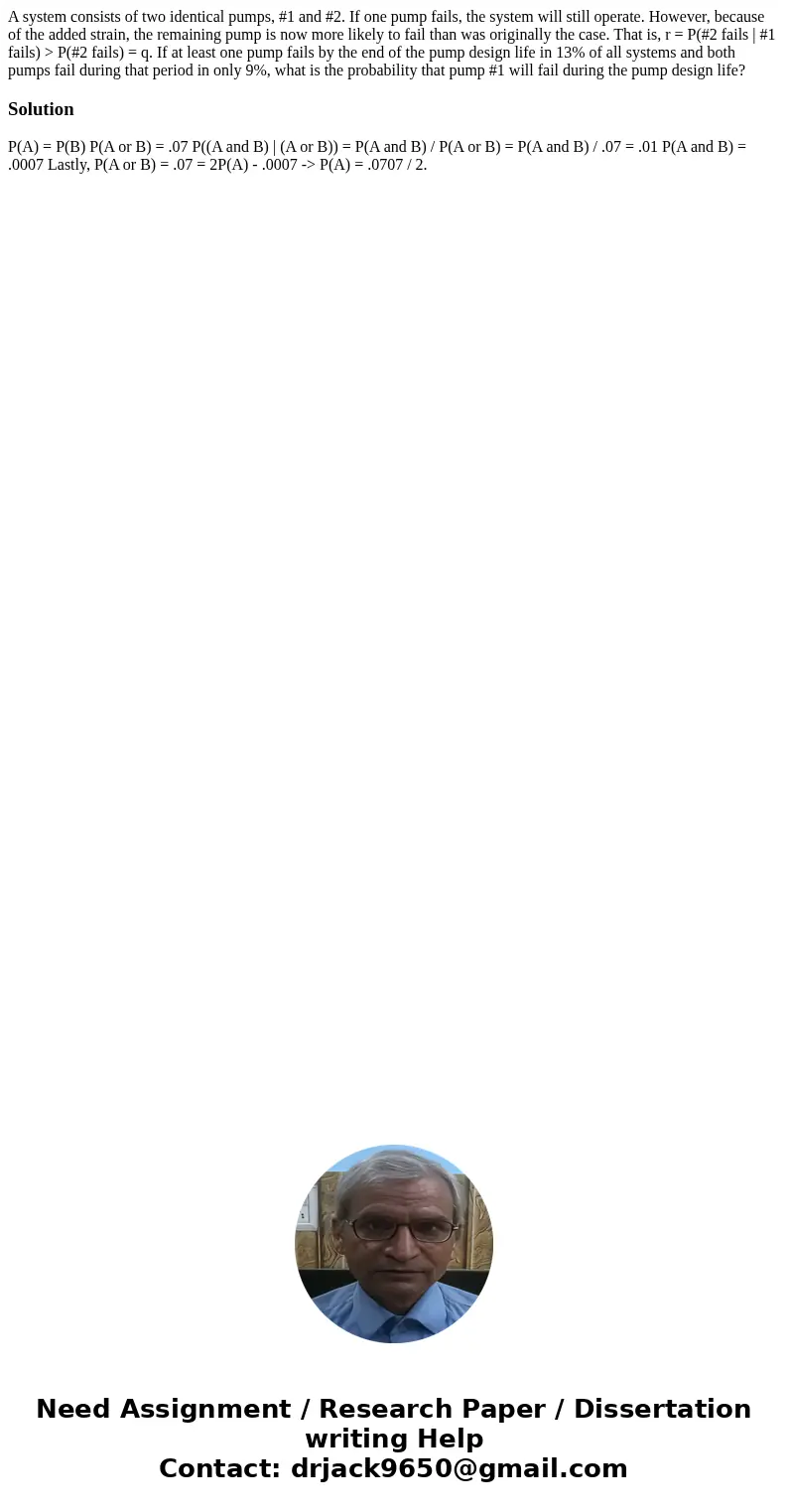A system consists of two identical pumps 1 and 2 If one pump
A system consists of two identical pumps, #1 and #2. If one pump fails, the system will still operate. However, because of the added strain, the remaining pump is now more likely to fail than was originally the case. That is, r = P(#2 fails | #1 fails) > P(#2 fails) = q. If at least one pump fails by the end of the pump design life in 13% of all systems and both pumps fail during that period in only 9%, what is the probability that pump #1 will fail during the pump design life?
Solution
P(A) = P(B) P(A or B) = .07 P((A and B) | (A or B)) = P(A and B) / P(A or B) = P(A and B) / .07 = .01 P(A and B) = .0007 Lastly, P(A or B) = .07 = 2P(A) - .0007 -> P(A) = .0707 / 2.
 Homework Sourse
Homework Sourse